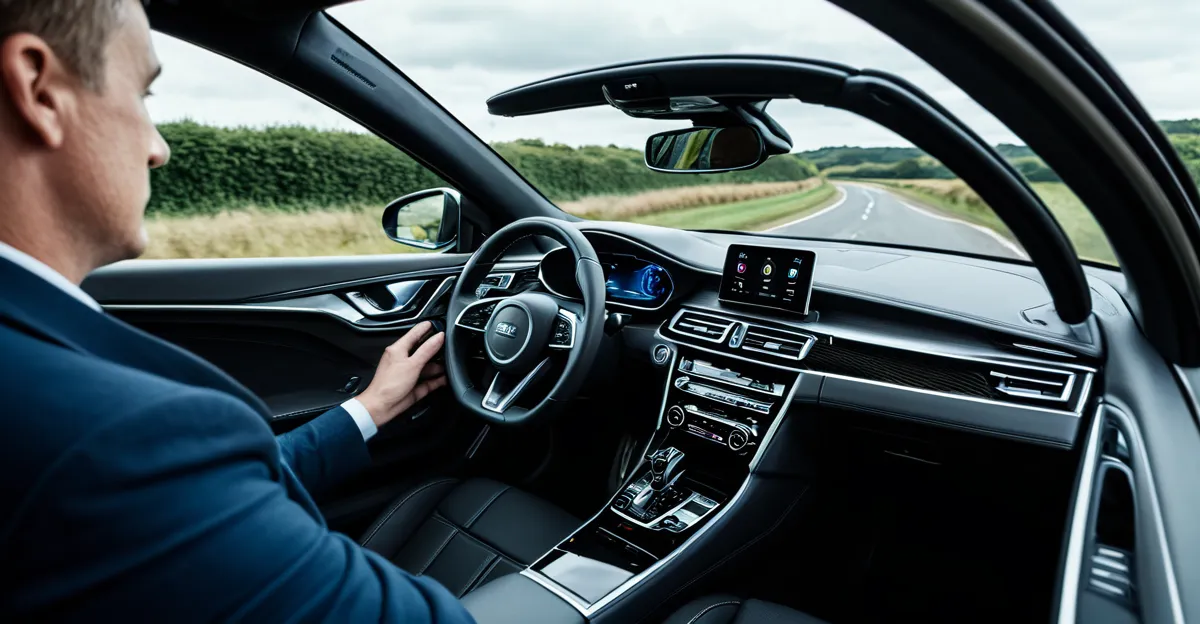Artificial intelligence reshaping the UK automotive industry
Artificial intelligence is fundamentally driving a technological transformation within the UK automotive industry. This transformation targets not just production efficiency but also innovation in vehicle design, safety, and user experience. Key sectors like manufacturing, autonomous vehicles, and connected car technologies are rapidly adopting AI solutions tailored to UK market needs.
In manufacturing, AI optimizes workflows through advanced robotics and predictive analytics, streamlining the entire supply chain. Autonomous vehicle development is progressing with AI algorithms enhancing decision-making in complex urban environments typical of UK cities. Connected cars leverage AI to offer seamless mobility services, integrating real-time traffic, weather, and user preferences.
Also to read : How is AI Revolutionizing Vehicle Manufacturing in the UK Auto Industry?
AI also tackles UK-specific challenges such as reducing emissions, improving road safety, and adapting vehicles for diverse conditions. Its ability to analyze vast datasets helps forecast vehicle maintenance needs and optimize fuel consumption, crucial for meeting the UK’s environmental targets.
Overall, embracing AI within the UK automotive industry is accelerating innovation while addressing local priorities effectively. This integration not only boosts competitiveness but sets a foundation for sustainable growth and smarter transportation solutions.
Topic to read : What strategies are UK car makers using to enhance fuel efficiency?
Applications of AI in UK automotive manufacturing
Artificial intelligence is revolutionizing manufacturing automation in the UK automotive industry by integrating AI applications and robotics to boost process efficiency. Smart manufacturing facilities deploy AI-powered robots that perform precise assembly tasks, reducing human error and increasing production speed. These systems adapt in real-time, learning from ongoing operations to optimize workflows dynamically.
Real-time quality control is enhanced through AI algorithms analyzing sensor data, instantly detecting defects and minimizing waste. Predictive maintenance uses AI to forecast equipment failures before they occur, preventing costly downtime and extending machinery lifespan. This proactive approach is critical for maintaining seamless production lines.
Additionally, AI transforms supply chain management by offering predictive insights into inventory demands and logistics, enabling manufacturers to adjust orders and deliveries efficiently. This leads to smoother coordination among suppliers and production schedules.
By harnessing AI in these ways, UK automotive manufacturing achieves higher precision, cost savings, and responsiveness. The incorporation of robotics, coupled with intelligent process controls, exemplifies how AI drives the sector’s technological transformation toward smarter, more resilient operations.
AI advancements in autonomous and connected vehicles
Autonomous vehicles are rapidly evolving within the UK automotive industry, with AI driving systems at the core of this advancement. The UK leads AI-powered trials in complex urban environments, reflecting the country’s unique road conditions. These AI algorithms enable vehicles to interpret traffic signals, pedestrian movements, and dynamic traffic patterns, ensuring safer and more reliable autonomous operations.
Connected cars also harness AI to create a seamless mobility ecosystem. By integrating real-time data on traffic, weather, and driver preferences, AI enhances navigation, reduces congestion, and personalizes the driving experience. This interconnected framework supports services such as predictive maintenance alerts and dynamic route adjustments.
Notable UK partnerships between automotive manufacturers and tech firms are accelerating innovation. These collaborations leverage AI to develop smarter, more adaptive vehicles that align with UK mobility goals, like reducing emissions and improving urban transport efficiency.
In summary, the combination of autonomous vehicles and connected car technologies illustrates a significant technological transformation in the UK automotive sector, powered by sophisticated AI applications tailored to meet local demands and advance smarter urban mobility.









